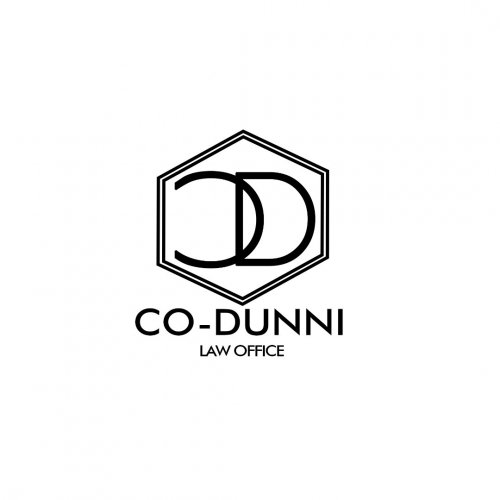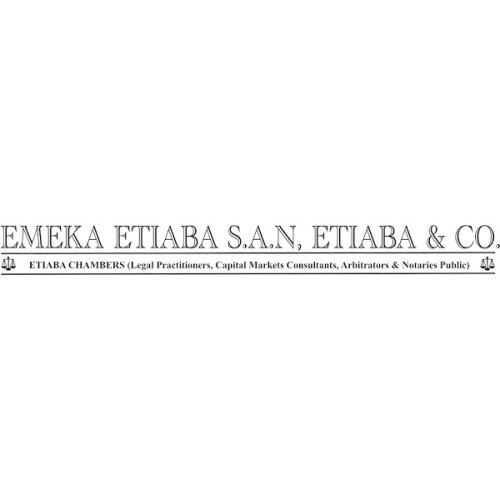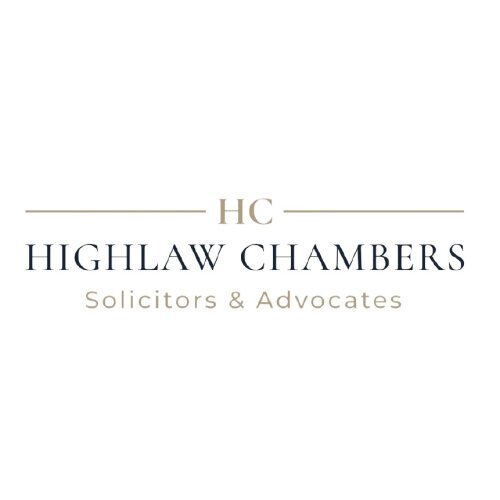Best Property Insurance Lawyers in Nigeria
Share your needs with us, get contacted by law firms.
Free. Takes 2 min.
Or refine your search by selecting a city:
List of the best lawyers in Nigeria
Legal guides written by Adeola Oyinlade & Co:
- Procedure and Requirements for Work Permit and Visas in Nigeria
- The Step-By-Step Procedure of How to Apply for Microfinance Bank License Online in Nigeria
- How to Ensure the Smooth Recognition and Enforcement of Foreign Judgments in Nigeria
About Property Insurance Law in Nigeria
Property insurance law in Nigeria involves the legal framework that governs the compensation provided to individuals and corporations for loss or damage to their property. It includes various forms, such as fire insurance, burglary insurance, and special perils insurance. The primary objective is to safeguard property owners against unexpected events that might result in financial loss. The legal aspects revolve around the contracts involved, claims process, and dispute resolution mechanisms. Insurance companies operating in Nigeria must comply with regulations set out by the National Insurance Commission (NAICOM), ensuring accountability and transparency within the industry.
Why You May Need a Lawyer
While purchasing property insurance may seem straightforward, there can be complex scenarios where legal assistance becomes crucial. Some common situations include:
- Disputes over claim settlements or denial of claims.
- Complex documentation and understanding the terms of insurance policies.
- Negotiating with insurance companies for better policy terms or coverage.
- Representation in court if an insurance dispute escalates to litigation.
- Legal guidance for small businesses and large corporations regarding comprehensive insurance schemes.
Local Laws Overview
In Nigeria, property insurance laws are influenced by several regulatory bodies and laws, including:
- The National Insurance Commission (NAICOM): As the primary regulator, NAICOM ensures compliance with the Insurance Act of 2003, providing guidelines and standards for operations within the industry.
- Contract Law: Insurance contracts are considered under general contract laws, where the principles of offer, acceptance, consideration, and consent must be fulfilled.
- The Insurance Act: Governs the operations of insurance providers in Nigeria, aiming to protect insurance policyholders and ensure a fair insurance market.
- The Consumer Protection Council Act: Provides additional security for consumers, ensuring that insurance providers maintain fairness and transparency.
- Case Law: Judicial decisions also play a significant role in shaping the current state of property insurance laws in Nigeria.
Frequently Asked Questions
What types of property insurance are available in Nigeria?
In Nigeria, common types of property insurance include fire insurance, theft insurance, flood insurance, and all-risk insurance, which could cover multiple perils under a single policy.
How do I file a claim for property insurance?
To file a claim, you need to notify your insurance company immediately after the incident, fill out the necessary claim forms, and provide all required documentation, such as proof of ownership and loss assessments.
What happens if my claim is denied?
If your claim is denied, you can request a formal explanation from the insurance company. Consulting a lawyer can help you evaluate your options and, if necessary, challenge the denial.
Can my insurance policy be canceled by my insurer?
Yes, but only under specific conditions outlined in your policy, such as non-payment of premiums or fraud. Your insurer must provide proper notice before cancellation.
Is property insurance mandatory in Nigeria?
While not typically mandated by law for all properties, certain policies, like fire insurance, can be a requirement for obtaining a mortgage.
How are premiums for property insurance calculated?
Premiums are based on various factors, including the type of property, location, value of the property, level of coverage, and perceived risk as assessed by the insurance provider.
What is the role of a surveyor in the property insurance process?
A surveyor assesses the extent of the damage and provides an estimate of repair or replacement costs, which aids in determining the amount payable in a claim.
Can I insure a rented property?
Yes, you can insure the contents within a rented property, although the landlord would typically insure the structure itself.
What is a deductible in a property insurance policy?
A deductible is the amount you must pay out of pocket before the insurance company covers the remaining costs of a claim. Higher deductibles generally lead to lower premiums.
How does re-insurance work in this context?
Re-insurance involves an insurance company purchasing additional coverage from another insurer to mitigate its own risk exposure, ensuring more significant claims can still be paid out.
Additional Resources
For more information, you can contact the following bodies:
- National Insurance Commission (NAICOM)
- Nigerian Council of Registered Insurance Brokers (NCRIB)
- The Nigerian Insurers Association (NIA)
- Consumer Protection Council (CPC)
- Legal clinics and law firms specializing in insurance law
Next Steps
If you require legal assistance with property insurance, consider the following steps:
- Gather all relevant documentation, including policy details, communication with the insurance company, and any correspondence regarding claims.
- Research and contact a lawyer experienced in insurance law, particularly one with expertise in property insurance disputes.
- Schedule a consultation to discuss your situation and explore your legal options.
- Follow through with legal advice to ensure that your rights and property are adequately protected.
Lawzana helps you find the best lawyers and law firms in Nigeria through a curated and pre-screened list of qualified legal professionals. Our platform offers rankings and detailed profiles of attorneys and law firms, allowing you to compare based on practice areas, including Property Insurance, experience, and client feedback.
Each profile includes a description of the firm's areas of practice, client reviews, team members and partners, year of establishment, spoken languages, office locations, contact information, social media presence, and any published articles or resources. Most firms on our platform speak English and are experienced in both local and international legal matters.
Get a quote from top-rated law firms in Nigeria — quickly, securely, and without unnecessary hassle.
Disclaimer:
The information provided on this page is for general informational purposes only and does not constitute legal advice. While we strive to ensure the accuracy and relevance of the content, legal information may change over time, and interpretations of the law can vary. You should always consult with a qualified legal professional for advice specific to your situation.
We disclaim all liability for actions taken or not taken based on the content of this page. If you believe any information is incorrect or outdated, please contact us, and we will review and update it where appropriate.
Browse property insurance law firms by city in Nigeria
Refine your search by selecting a city.

















